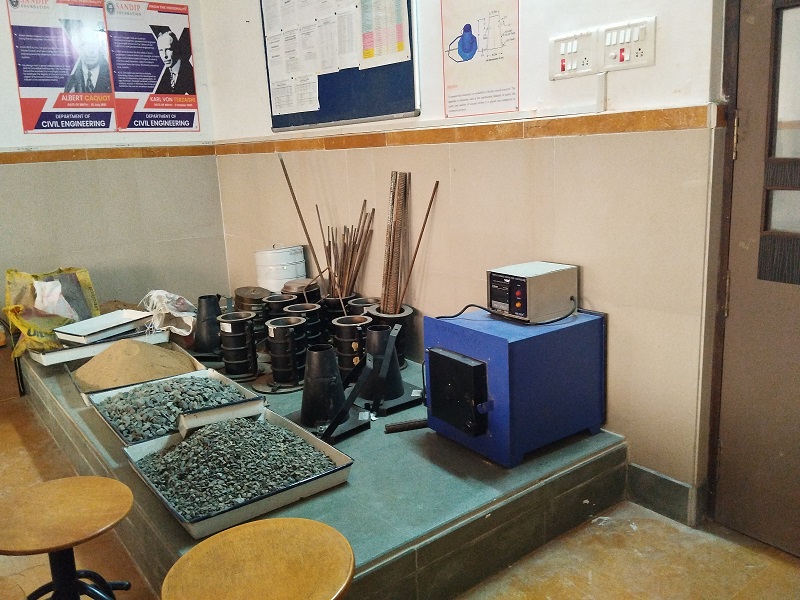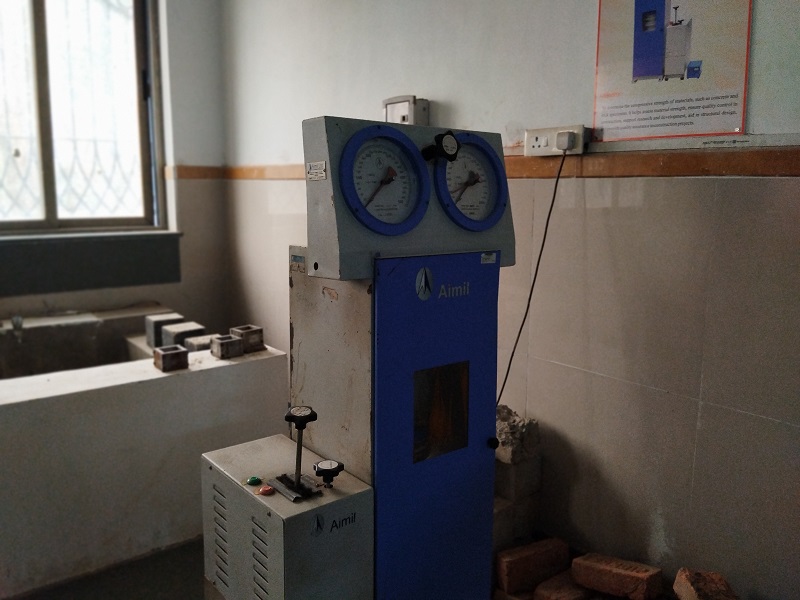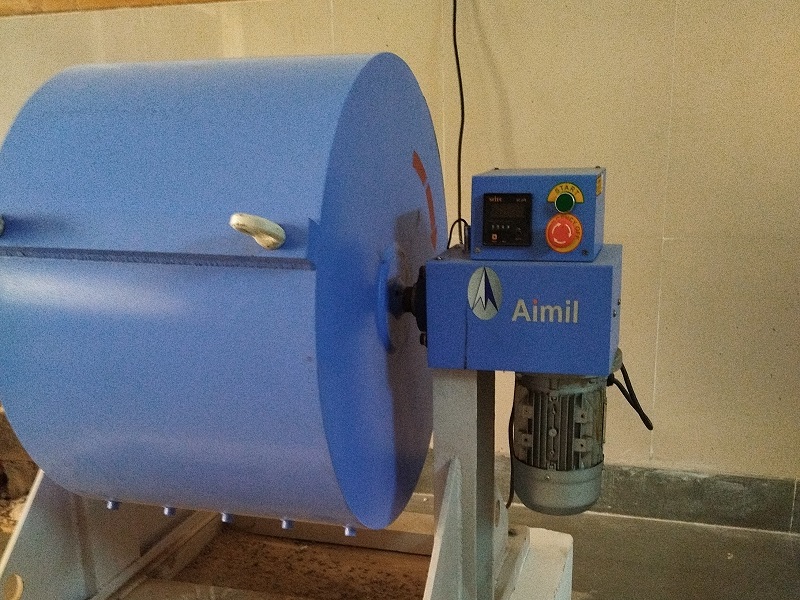
Apply Now
About Civil Engineering
Salient Features
Infrastructural Facilities
- Modern state-of-the-art infrastructure.
- Updated and innovative curriculum aligned with the UGC and AICTE-CBC norms.
- Highly qualified and experienced faculty members.
- Modern-age classrooms with LED and modern in-class infrastructure.
- Modern and well-equipped laboratories with the latest lab equipment.
- Departmental library with the latest editions with a well-equipped seating facility.
- Sufficient quantity of computers.
- Software like PSCAD, MATLAB, PLC & SCADA, and ETAP.
- Modern and well-equipped hostel facilities.
International Networks
- The Department has signed MoUs for Industry and Institution interaction.
- Long tradition of organizing guest lectures, training workshops, and faculty development programs.
- Networks for national and international placements.
- Networks with global/international universities which help the students in student exchange programs and getting an international placement.
Innovative and Creative Curriculum
- Technologically updated curriculum with the latest knowledge and trends in the field.
- Student-centric curriculum which is continuously updated to make it relevant to the current advancements in the field.
- Curriculum embedded with global and international trends, which helps the students to work and study further in a globalized international setting.
Vision
- To establish an outstanding Centre of regional and national reputation for providing a quality based education to the Civil Engineering students.
Mission
- M1:To serve students by providing a broad and high quality education for a successful professional career.
- M2:To conduct strong basic and applied research for national needs.
- M3:To serve the construction industry; civil engineering profession and rural community through dissemination of knowledge and technical services.
Program Educational Objective (PEOs)
| PEO1 | : To train the students so that they can work and contribute to the infrastructure development projects being undertaken by government, private or any other sector companies. |
| PEO2 | To train students in such as a way that they can pursue higher studies so that they can contribute to the teaching profession/ research and development of civil engineering and other allied fields. |
| PEO3 | To train students in a manner that they should function effectively in the multicultural and multidisciplinary groups for the sustainable development and growth of civil engineering projects and profession. |
Programme Outcome (POs)
| PO1 | Engineering knowledge: Apply the knowledge of mathematics, science, engineering fundamentals, and an engineering specialization to the solution of complex engineering problems. |
| PO2 | Problem analysis: Identify, formulate, review research literature, and analyze complex engineering problems reaching substantiated conclusions using first principles of mathematics, natural sciences, and engineering sciences. |
| PO3 | Design/development of solutions: Design solutions for complex engineering problems and design system components or processes that meet the specified needs with appropriate consideration for the public health and safety, and the cultural, societal, and environmental considerations. |
| PO4 | Conduct investigations of complex problems: Use research-based knowledge and research methods including design of experiments, analysis and interpretation of data, and synthesis of the information to provide valid conclusions. |
| PO5 | Modern tool usage: Create, select, and apply appropriate techniques, resources, and modern engineering and IT tools including prediction and modeling to complex engineering activities with an understanding of the limitations. |
| PO6 | The engineer and society: Apply reasoning informed by the contextual knowledge to assess societal, health, safety, legal and cultural issues and the consequent responsibilities relevant to the professional engineering practice. |
| PO7 | Environment and sustainability: Understand the impact of the professional engineering solutions in societal and environmental contexts, and demonstrate the knowledge of, and need for sustainable development. |
| PO8 | Ethics: Apply ethical principles and commit to professional ethics and responsibilities and norms of the engineering practice. |
| PO9 | Individual and team work: Function effectively as an individual, and as a member or leader in diverse teams, and in multidisciplinary settings. |
| PO10 | Communication: Communicate effectively on complex engineering activities with the engineering community and with society at large, such as, being able to comprehend and write effective reports and design documentation, make effective presentations, and give and receive clear instructions. |
| PO11 | Project management and finance: Demonstrate knowledge and understanding of the engineering and management principles and apply these to one’s own work, as a member and leader in a team, to manage projects and in multidisciplinary environments. |
| PO12 | Life-long learning: Recognize the need for, and have the preparation and ability to engage in independent and life-long learning in the broadest context of technological change. |
Programme Specific Outcome (PSO)
| PSO1 | PSO1. Ability to analyze and design physical systems, components, and process by meeting the constraints such as safety, public health and environment. |
| PSO2 | PSO2. To work professionally in construction, design by using modern engineering tools and solve civil engineering problems. |
Career Opportunities in Civil Engineering

Civil Engineer
A civil engineer is tasked with designing, planning, constructing, and overseeing maintenance of roads, buildings, bridges, railways, airports, dams, etc.

Transportation Engineer
A transportation engineer is responsible for overseeing, designing, developing, and maintaining different types of transportation systems such as roadways, railways, sea ports, airports etc.

Environmental Engineer
Environmental engineers are tasked with developing and managing projects that impact the environmental safety with regards to pollution, waste disposal systems, water management, etc.

Structural Engineer
Structural engineers are professionals who design and develop structures that can stand against environmental damage or human error over long periods of time.
Fee Structure & Eligibility
| Programme | Sem | Year | Mode | Eligibility | Fees Per Year Per Year (INR) |
|---|---|---|---|---|---|
SCHOOL OF ENGINEERING & TECHNOLOGY (UG) (First and Direct Second Year) |
|||||
| B.Tech (Civil Engineering) | 8 | 4 | Sem | Candidates must have 45% marks in 10+2 and 45% in PCM compulsory OR Pass 3 years Diploma examination with at least 50% marks. ( For Lateral Entry/ Direct Second Year) | Rs. 90,000/- |
Note:
- Forms and Prospectus: ₹500 /- (One Time)
- Hostel Security Deposit: ₹5000 /- (One Time)
- Hostel Fees: ₹75,000 /- (Per Year)
- Uniform Cost: ₹5,500/- (At the Time of Admission)
- Convocation and Certificate : ₹3,000 /-(Final Year)
- University Caution Money: ₹3,000 /- (Refundable)
- Hostel Rooms Allotment at the discretion of the Hostel Supervisor
- Hostel rooms are with bunk bed only
- Registration fees for Diploma & B.Sc. Agriculture: ₹3500/-
- For all other Courses: ₹2500/-
- If any student wants accomodation in B1 Hostel, they have to pay ₹10,000/- extra per year, allotment based on availability of the Hostel room.














